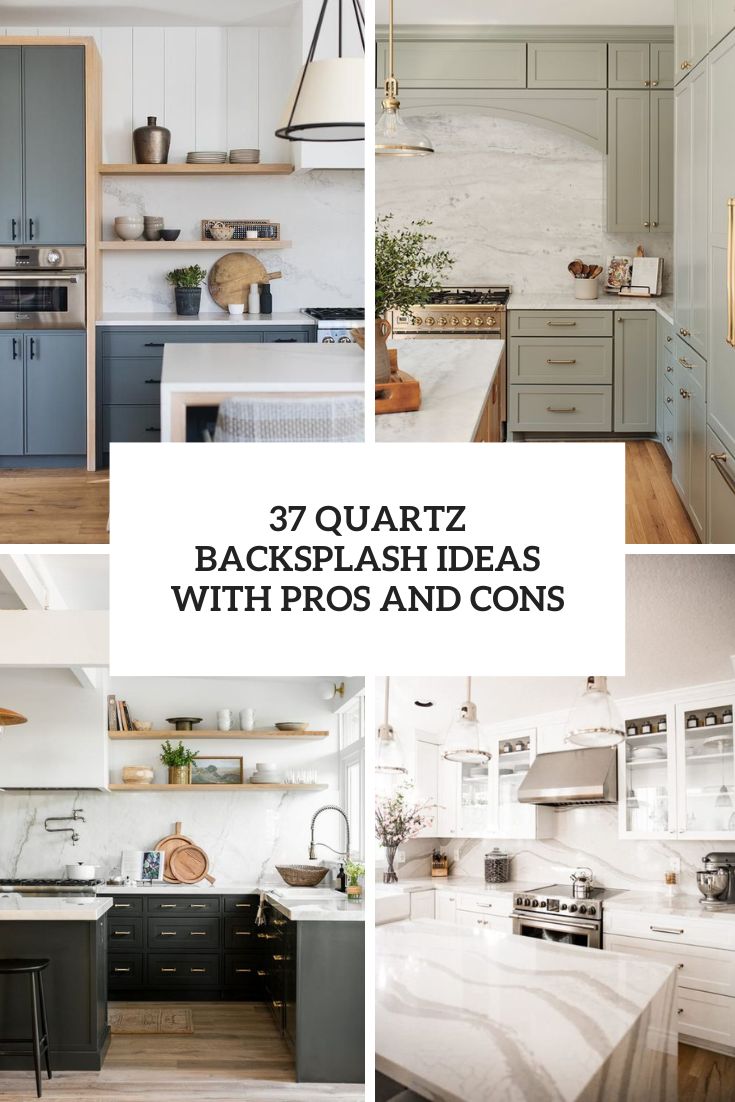While quartz in a kitchen is usually found as countertops, more and more designers are choosing to install a quartz backsplash in their kitchens as kitchen backsplash centerpiece is trending these days. If you are thinking over installing such a backsplash in your kitchen, you can first consider pros and cons of this material to understand if you need it or not. But first of all, let’s find out.
What Is Quartz?
Quartz is a natural mineral, but quartz slabs, used to make countertops and backsplashes, are engineered by humans. Manufacturers make quartz backsplashes by grinding quartz into dust and combining it with resins and pigments. The resins bind the quartz dust together, making it non-porous and durable, while the pigments add color and veining.
What Are Pros Of Quartz Backsplashes?
Quartz is relatively hard and can tolerate a few accidental bumps, it isn’t indestructible. Avoid slamming hard and heavy objects like a cast iron skillet against your quartz backsplash.
Since quartz backsplashes are engineered, they come in a much broader range of colors and patterns than natural stone backsplashes like marble and granite. They’re usually designed to mimic natural stones, like marble, granite, and soapstone, and come in shades like black, gray, white, brown, and beige.
Quartz is a non-porous material, so liquids can’t seep through and damage it. The only maintenance you’ll need to do is regular cleaning. Since quartz is non-porous, it’s also stain-resistant. Anything you spill onto it will stay on the surface rather than seeping in. One of the most significant benefits of a quartz backsplash is that it’s easy to clean. Large quartz slabs provide a smooth grout-free surface that you can quickly wipe clean.
With proper care, quartz backsplashes can last a lifetime. Manufacturers are so confident in its durability that backsplashes are often backed by a 10-year to lifetime guarantee, depending on where you purchase it.
Most quartz backsplashes are designed as large slabs. Usually, they match or at least coordinate with the countertop. Extending the counters into the backsplash provides a modern, clean, and luxurious look. Without grout lines, you have a seamless, highly moisture-resistant surface that you can easily wipe clean.
When investing in a permanent design element like a backsplash, you want to know your choice will be in style in the future. With quartz it’s a certain thing: you will get a great backsplash with a timeless feel.
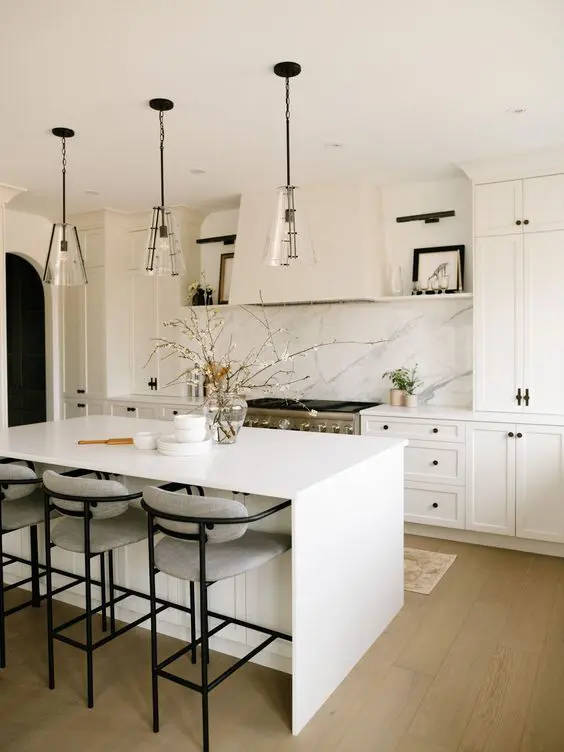
A beautiful modern kitchen with white shaker cabinets, a white quartz backsplash, a white kitchen island and glass pendant lamps.
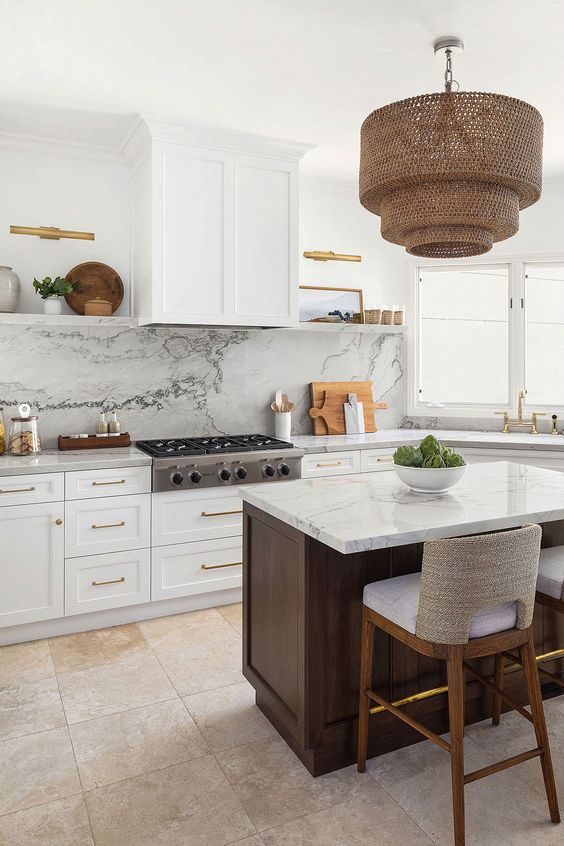
A beautiful white kitchen with shaker cabinets, a white quartz backsplash and countertops, a dark-stained kitchen island and a woven pendant lamp.
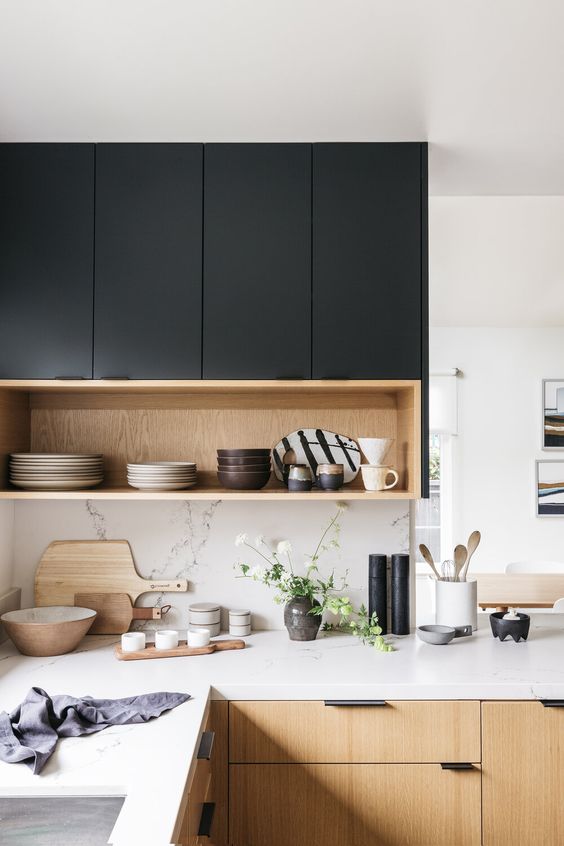
A black and light-stained kitchen with white quartz countertops and a backsplash is a lovely and chic contemporary space.
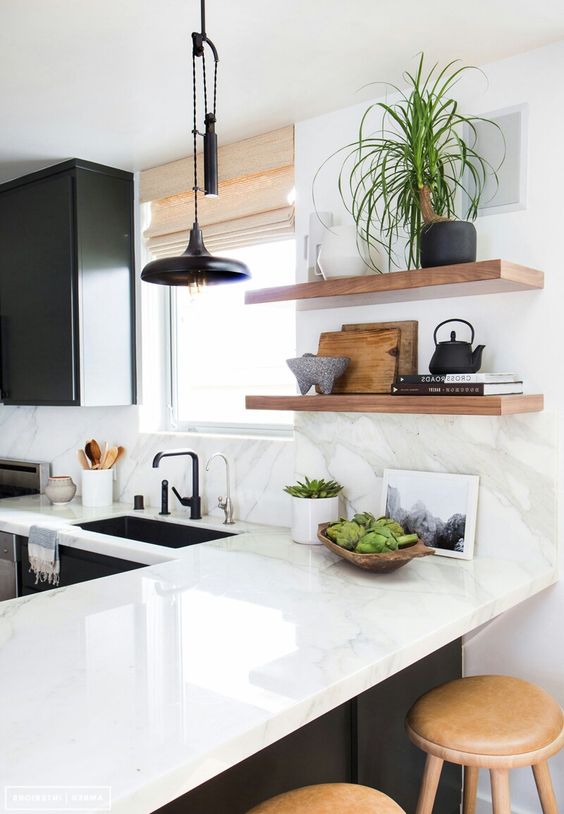
A black and white kitchen with shaker cabinets, a white quartz countertop and a backsplash and open shelves.
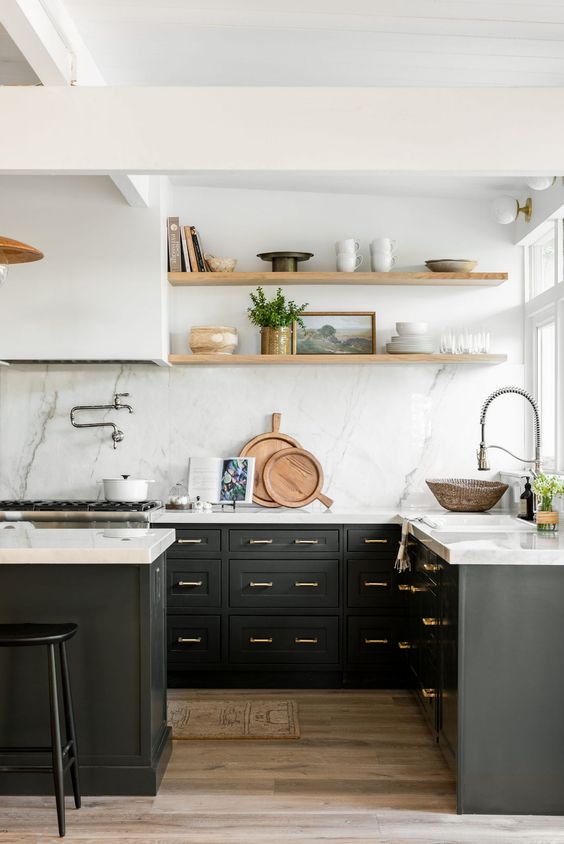
A black farmhouse kitchen with shaker cabinets, a white quartz backsplash and countertops, a white hood and stained shelves.
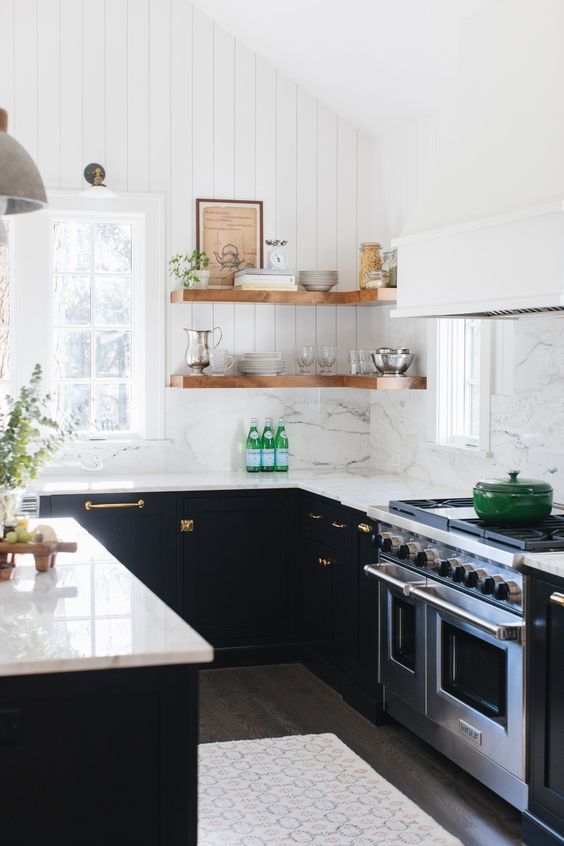
A black U-shaped kitchen with a white marble backsplash and countertops, stained corner shelves and greenery.
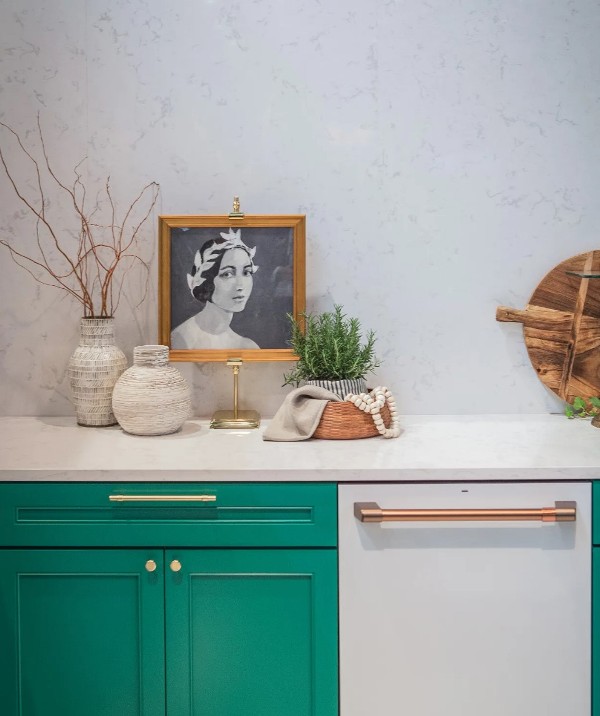
A bold emerald kitchen with shaker cabinets, a white quartz backsplash and matching countertops, some lovely decor.
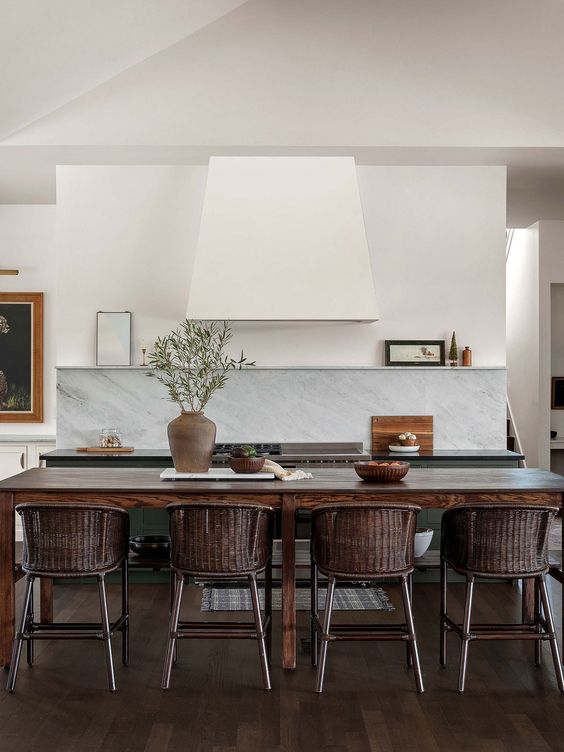
A catchy kitchen with green cabinets, a white hood and a shelf, a stained table and chairs, a white quartz backsplash.
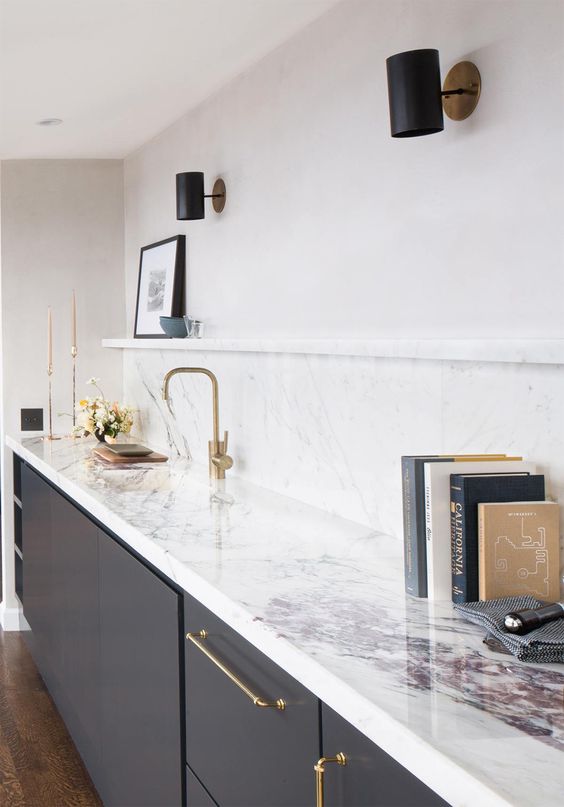
A charcoal grey kitchen with a white quartz backsplash and countertops plus gold fixtures and black spotlights.
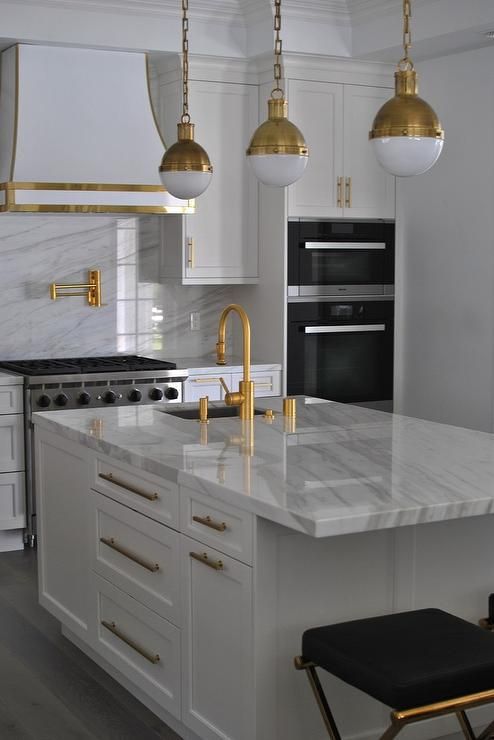
A chic white kitchen with shaker cabinets and a kitchen island, a white quartz backsplash and countertops plus touches of gold.
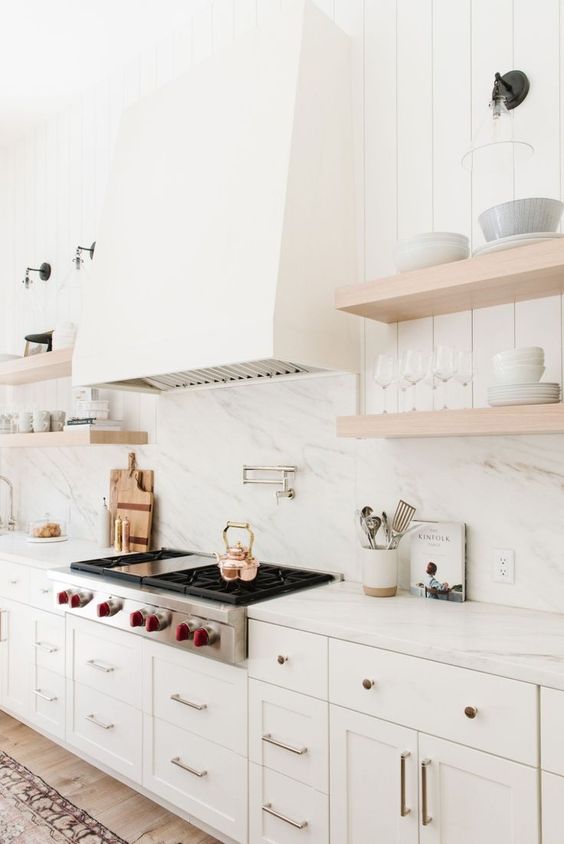
A creamy and airy kitchen with shaker cabinets, a white quartz backsplash and countertops, wooden shelves and a large hood.
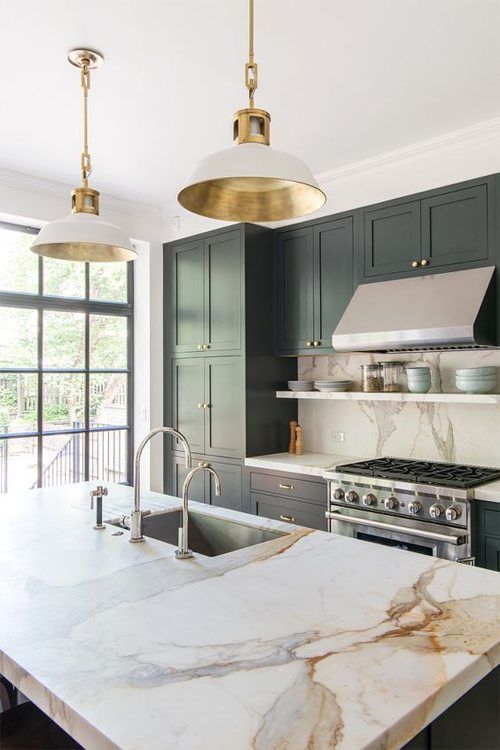
A chic dark green kitchen with shaker cabinets and a matching kitchen island, a white quartz backsplash and countertops.
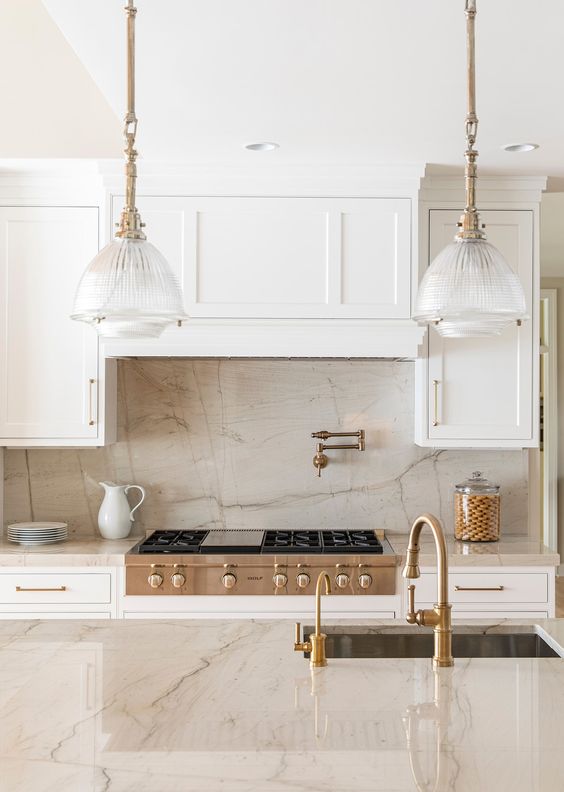
A creamy kitchen with shaker cabinets, a neutral quartz backsplash and countertops, vintage glass pendant lamps.
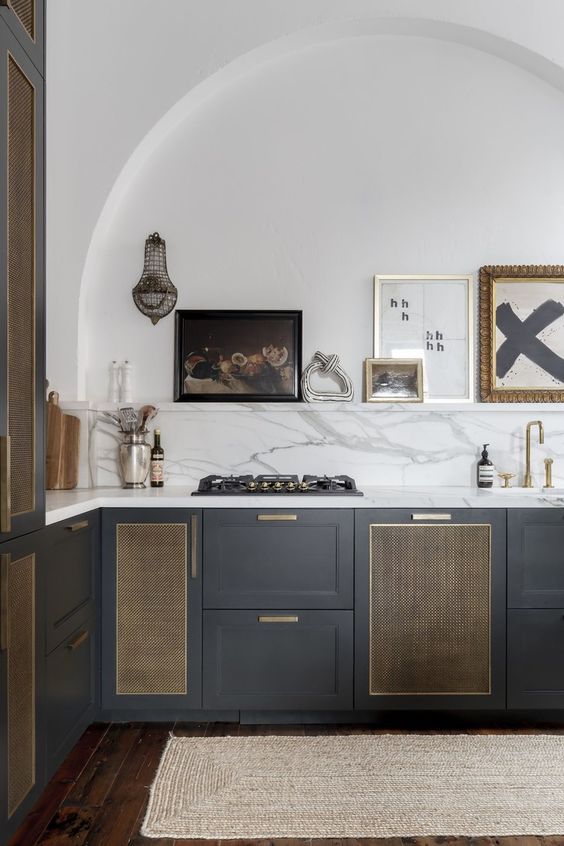
A dark grey kitchen with shaker cabinets, rattan doors, a white quartz backsplash and countertops, a ledge with some lovely decor.
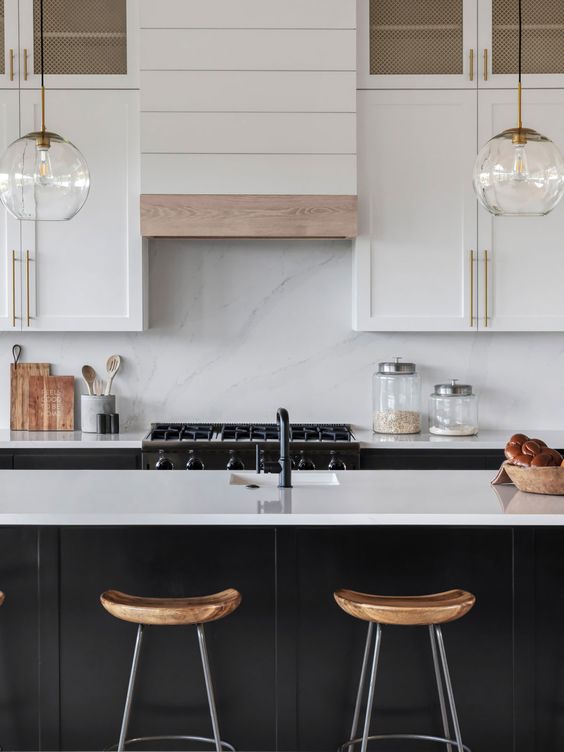
A farmhouse kitchen with white shaker cabinets, a black kitchen island, a white quartz backsplash and countertops, pendant lamps.
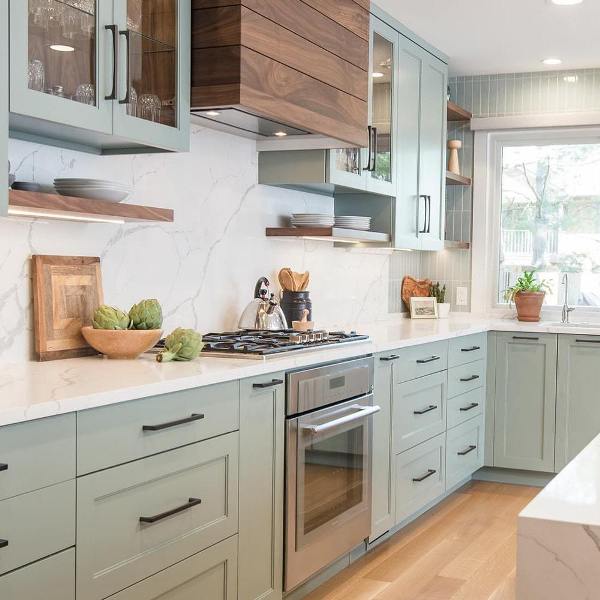
A lovely light green kitchen with shaker cabinets, open shelves, a white quartz backsplash and countertops and a matching kitchen island.
What Are Cons Of Quartz Backsplashes?
Quartz is not as heat resistant as natural materials such as granite and marble. Quartz can handle high heat, but the resins inside quartz backsplashes will melt and discolor when exposed to high temperatures. If you’re installing quartz behind a cooktop, there must be plenty of space between the backsplash and the burners. Always hire a professional installer to ensure there’s enough distance between the cooktop and the backsplash.
Quartz backsplashes are not 100% natural. Manufacturers add epoxy resin and pigments to turn quartz dust into a hard slab you can use as your kitchen backsplash. While quartz can mimic natural stone backsplashes, it doesn’t provide the unique and imperfect look you get with 100% natural materials such as marble and granite. Even the veining is placed by hand or with a machine.
While quartz is durable, it’s also weighty and notoriously tricky to install. It’s likely not something you’ll want to install by yourself. Lifting a heavy slab of quartz may cause back and shoulder injuries from the strain of the load.
Just as the resin makes quartz backsplashes more vulnerable to heat damage, it also makes them prone to fading. Epoxy resin lacks UV resistance, so prolonged exposure to direct sunlight will fade it over time. Because of this, you’ll need to consider the placement of your quartz backsplash carefully. It’s not a good idea to place it near large windows with a lot of bright light. They’re also not suitable for outdoor kitchen setups.
If you chip your quartz backsplash, you’ll want to contact a professional to repair it. DIY repair jobs will be noticeable and reduce the aesthetic quality. A professional can fill the chip and sand it down with specialized tools, making it look new.
High-end quartz can be expensive, especially if you want a large, seamless slab. While quartz backsplash price information is limited, countertop prices can be used as a rough estimate.
Quartz is an excellent backsplash material because it’s durable, low maintenance, and customizable. It provides a contemporary, seamless look you can’t get with tile. Plus, its popularity is rising, so don’t expect it to go out of style any time soon. Get inspired to rock one in your place!
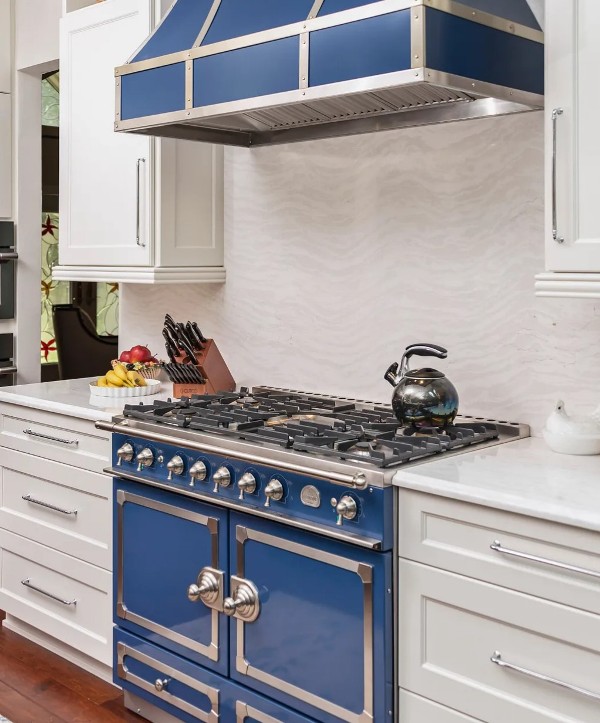
A lovely white kitchen with shaker cabinets, a blue cooker and a hood, a white quartz backsplash and matching countertops.
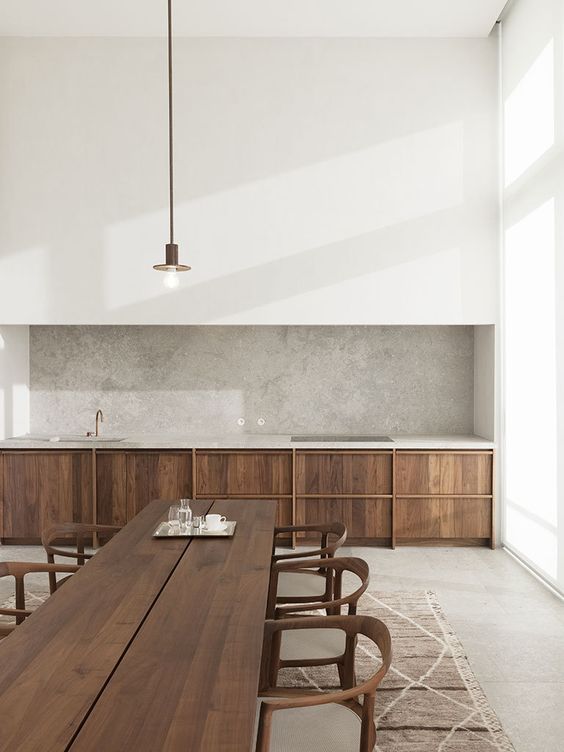
A minimalist kitchen with stained lower cabinets, a large white panel over them, a grey quartz backsplash and countertops.
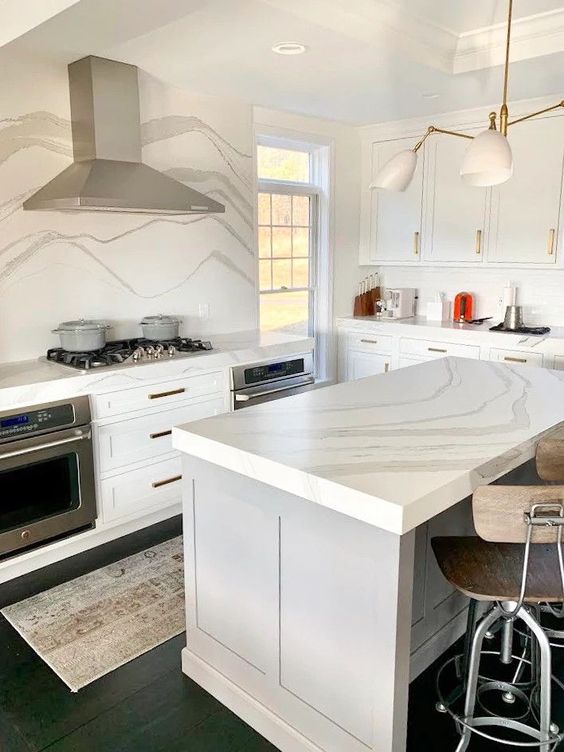
A modern white kitchen with shaker cabinets, a grey kitchen island, a white quratz backsplash and countertops plus a modern chandelier.
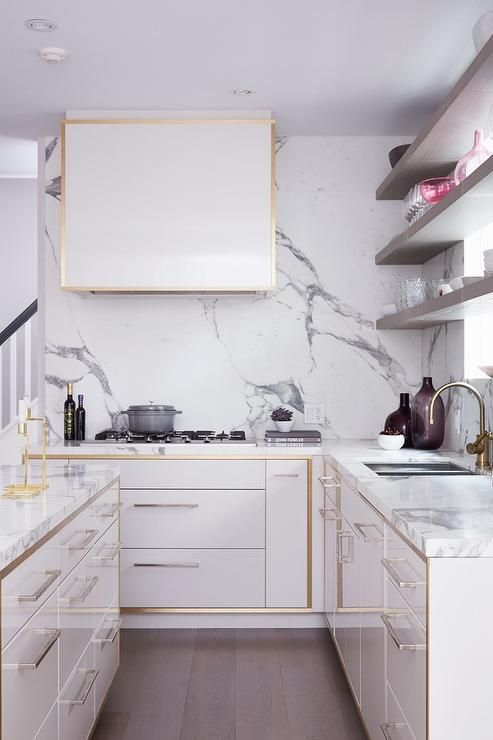
A modern white kitchen with sleek cabinets with gilded edges and a matching hood plus a white quartz backsplash and countertops.
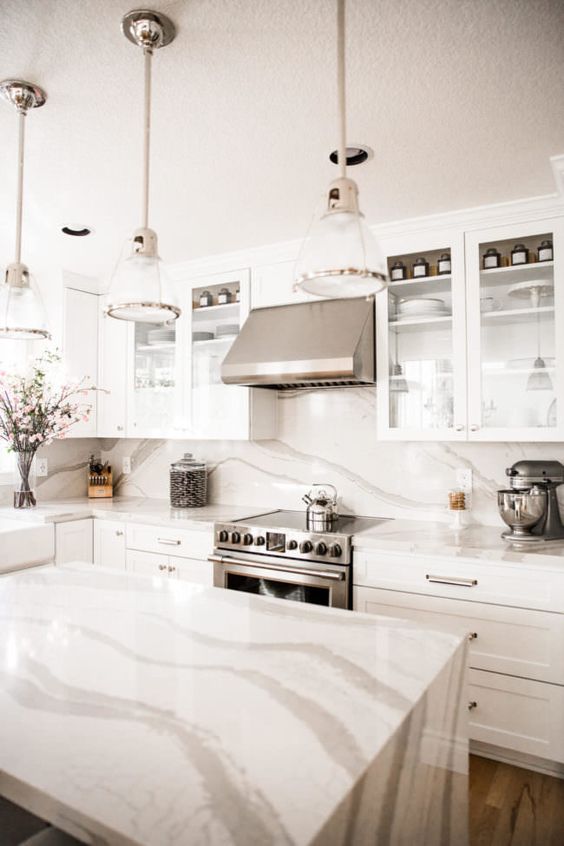
A neutral kitchen with shaker cabinets and glass ones, a white quartz backsplash and matching countertops, elegant lamps.
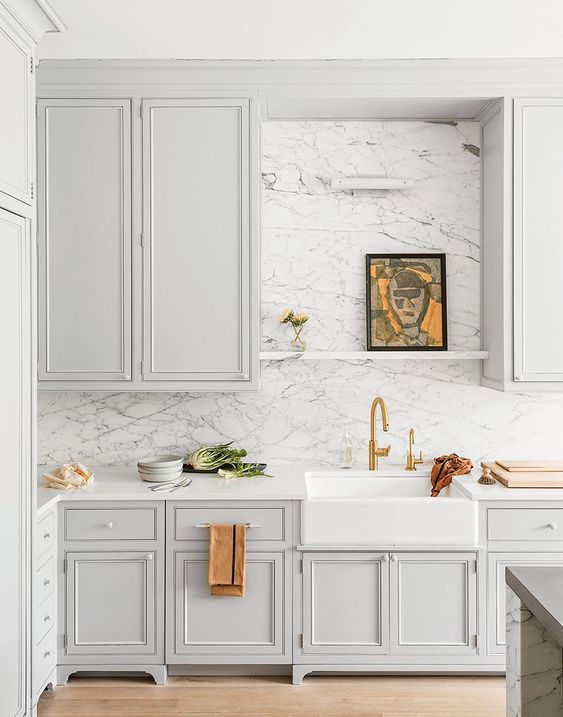
A pale grey kitchen with shaker cabinets, a white quartz backsplash and countertops, gold touches and lights.
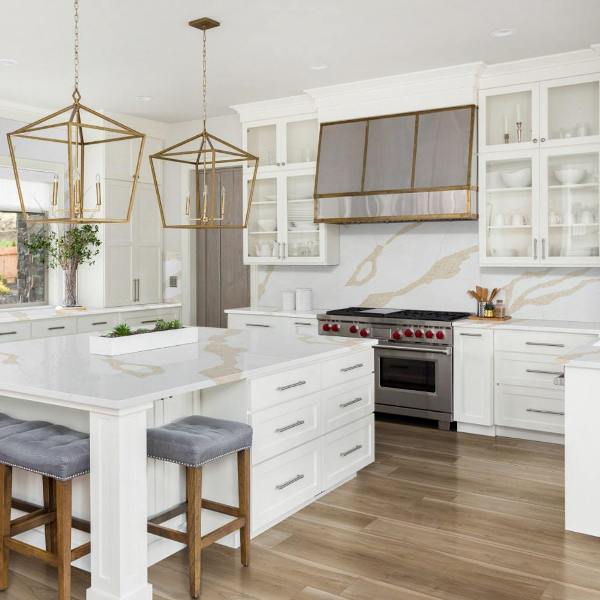
A refined creamy kitchen with shaker cabinets, a white quartz backsplash and countertops, oversized brass pendant lamps.
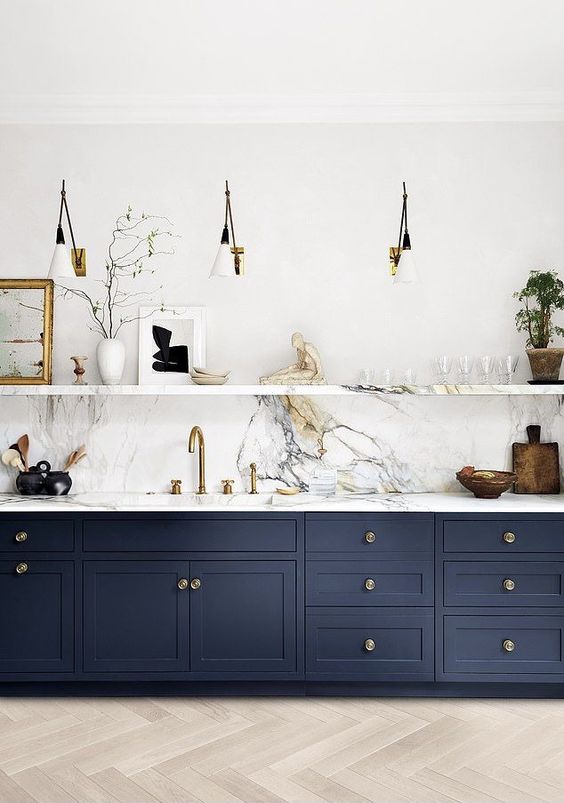
A refined navy kitchen with shaker cabinets, a white quartz backsplash and countertops, chic and cool sconces.
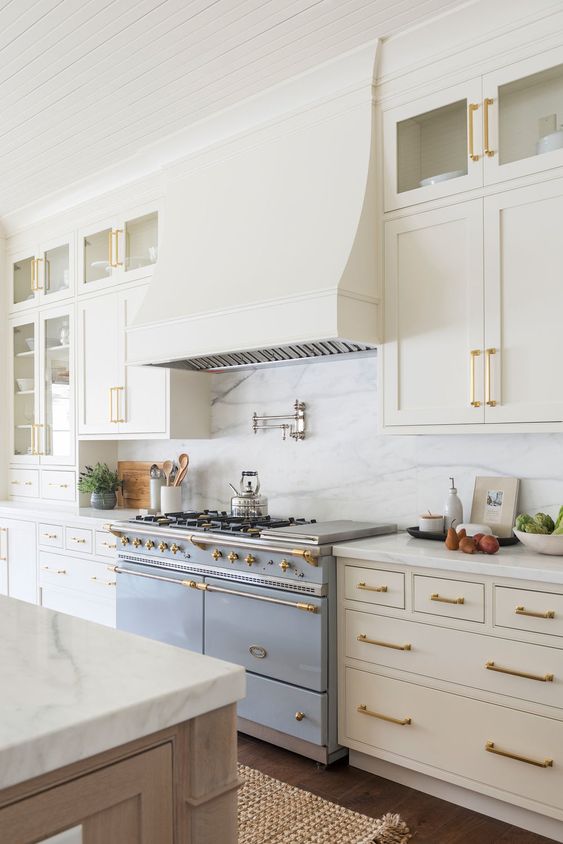
A refined vintage creamy kitchen with shaker cabinets, a white quartz backsplash and countertops, brass and gold fixtures.
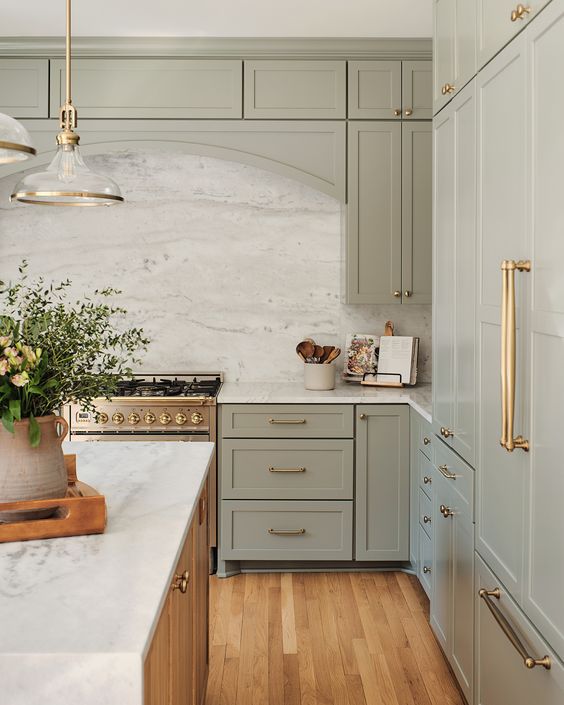
A sage green kitchen with shaker cabinets, a white quartz backsplash and countertops, pendant glass lamps.
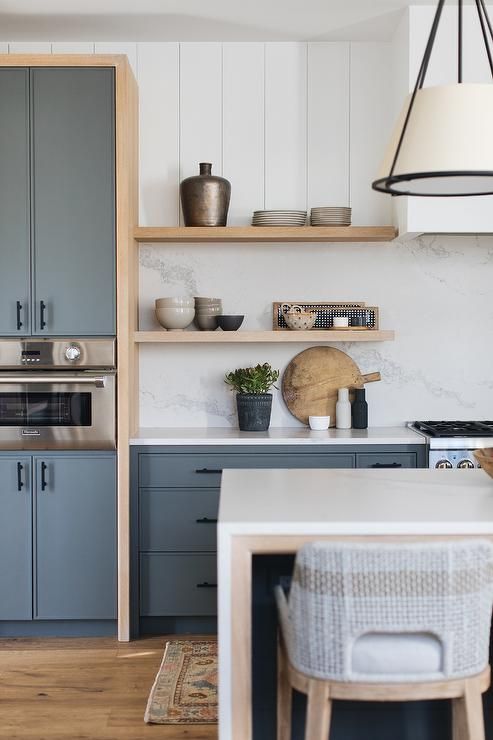
A slate grey kitchen with sleek cabinets, a white quartz backsplash and countertops, open shelves and black fixtures.
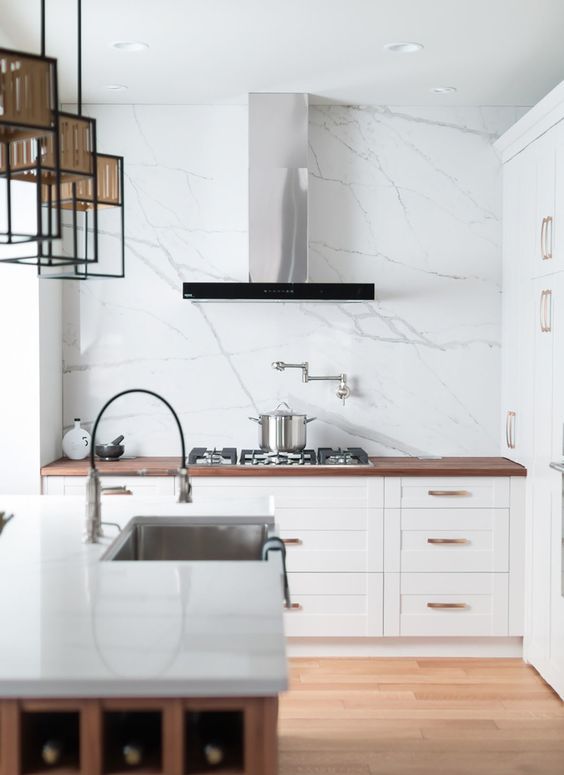
A small and cool white kitchen with shaker cabinets and a white quartz backsplash, butcherblock and quartz countertops.
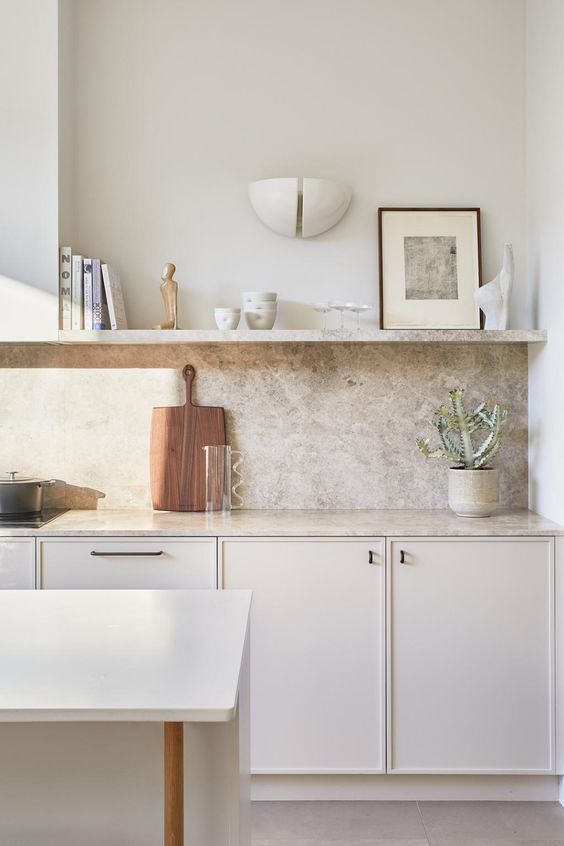
A small and elegant creamy kitchen with a grey quartz backsplash and countertops plus an open shelf is amazing.
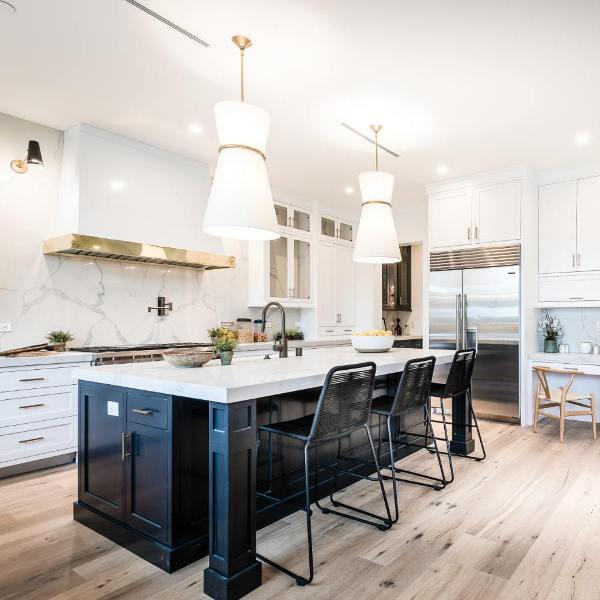
A sophisticated white kitchen with shaker cabinets, a black kitchen island, a large hood, a white quartz backsplash and matching countertops.
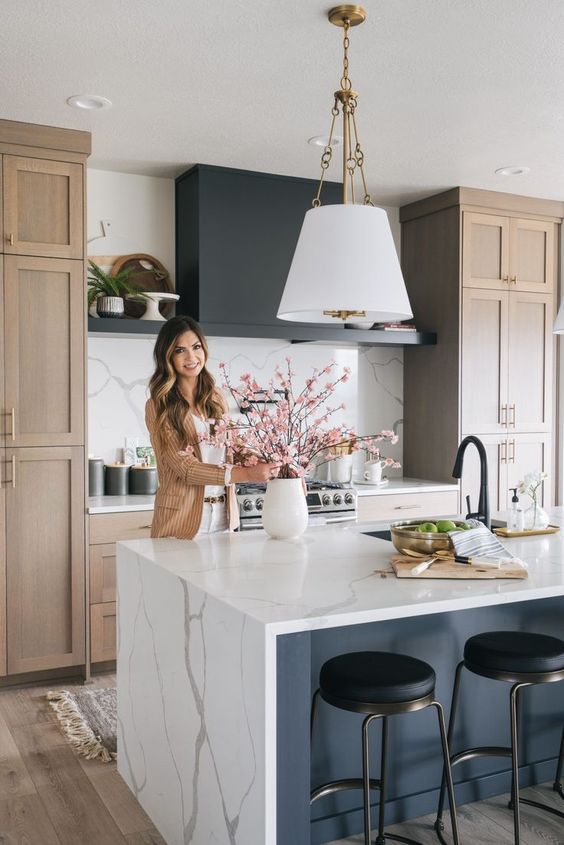
A stained kitchen with shaker cabinets, a black hood, a black kitchen island, a white quartz backsplash and countertops.
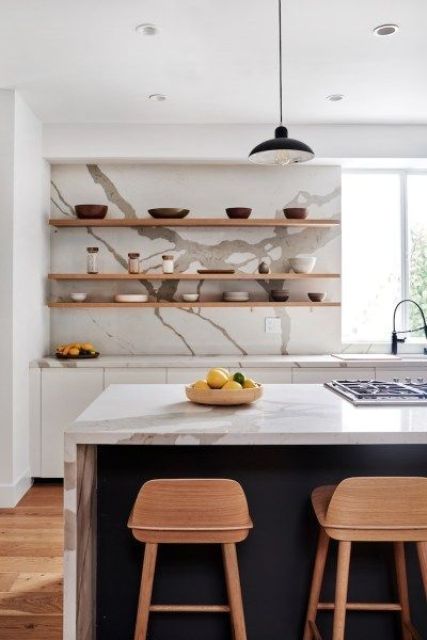
A stylish white kitchen with a navy kitchen island, a white quartz backsplash and countertops and open shelves.
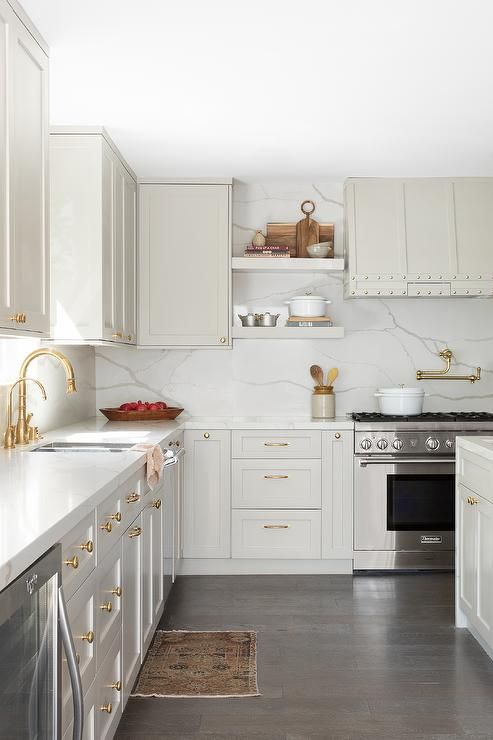
A very light grey kitchen with shaker cabinets, a white quartz backsplash and countertops and gold fixtures is pure elegance.
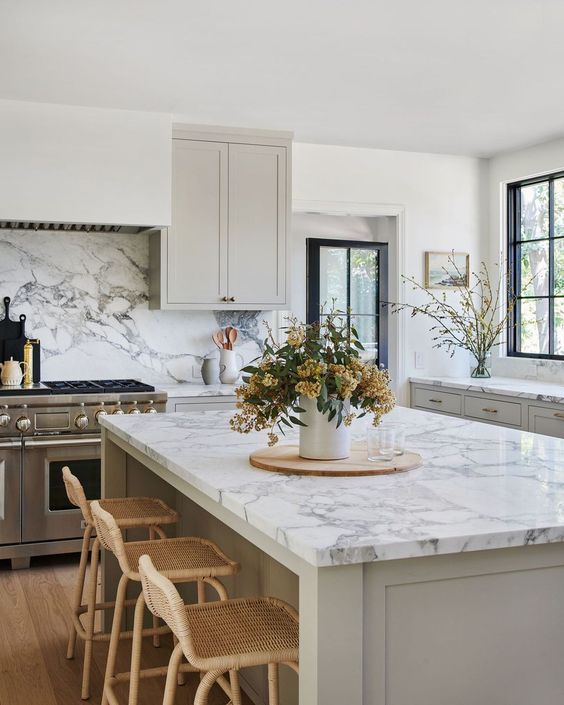
An airy greige kitchen with a white quartz backsplash and matching countertops that elevate the look of the space.
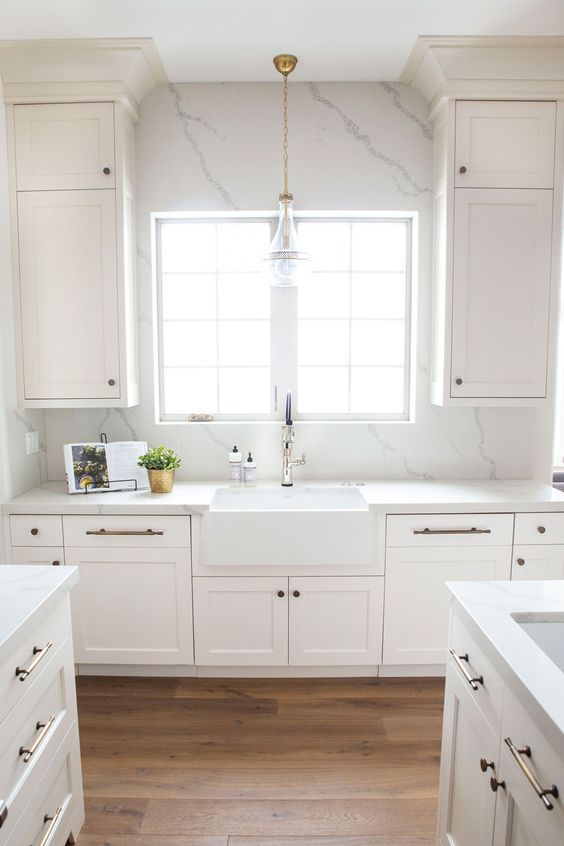
An airy white kitchen with shaker cabinets, a white quartz backsplash and countertops plus brass fixtures is wow.
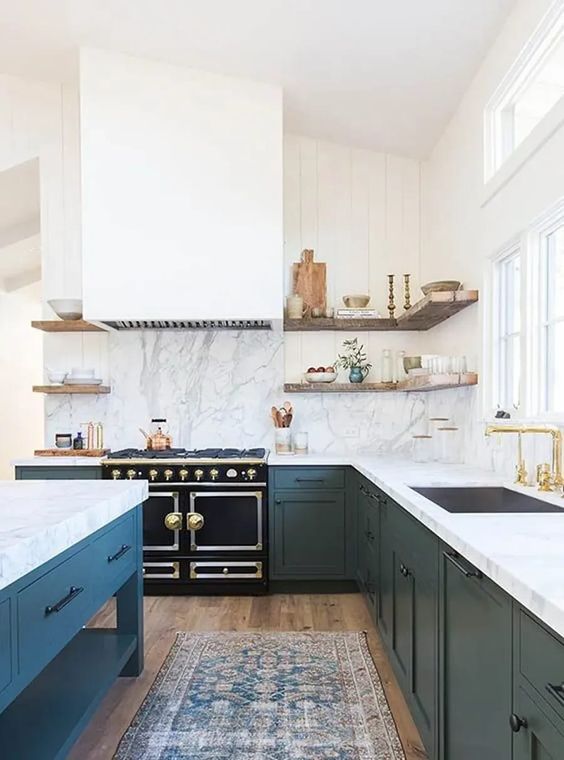
An elegant dark green kitchen with shaker cabinets, a large white hood, a white quartz backsplash and countertops.
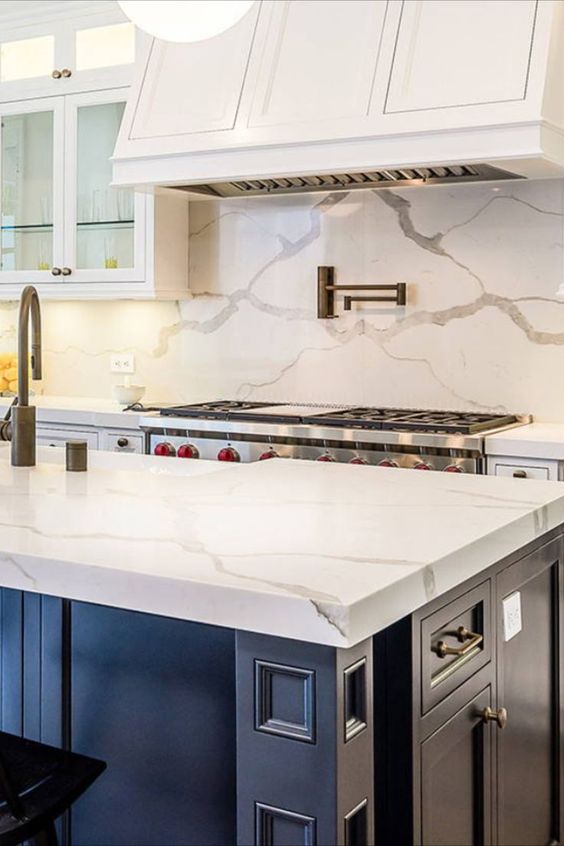
An elegant kitchen with white cabinets and a navy kitchen island, a white quartz backsplash and countertops plus a white hood.
